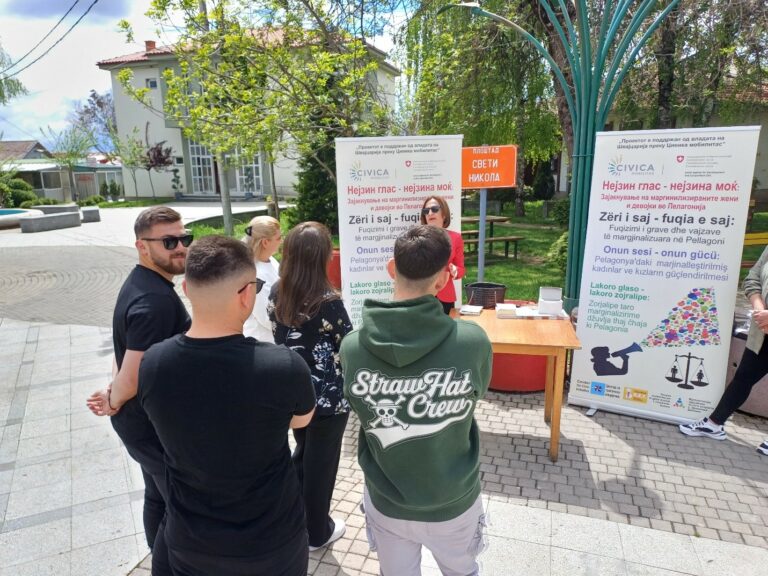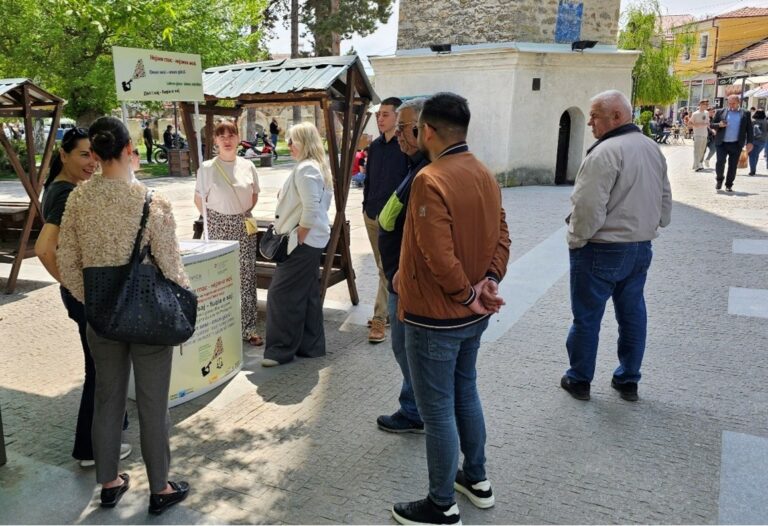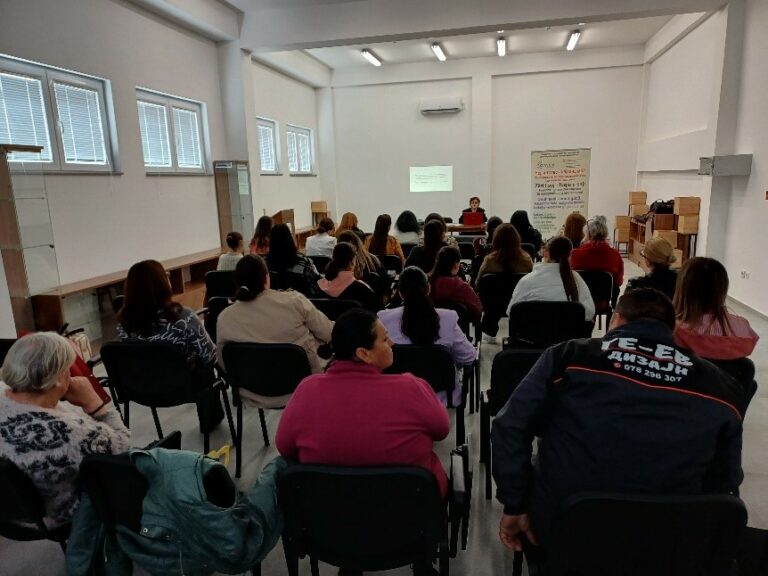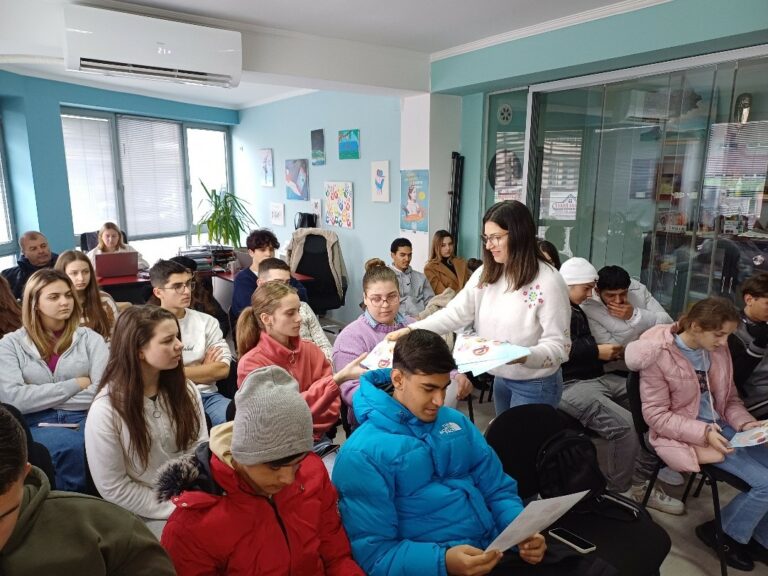Within the project "Prevention of risks for environmental sustainable practices for agro producers - PRESPA" financed by the European Union from the for cross-border cooperation programme between the Republic of North Macedonia and the Republic of Albania, and implemented by the Center for Civil Initiative from Prilep, Municipality of Resen, Organization for Management of Destinations from Korča and Municipality of Devoll, a community meeting was held at which apart from the presentation of the construction of the sewage network and treatment plants in the villages of Rakicke, Shuec and Zagradec, the participants gained invaluable insights into the multifaceted approach required to address pesticide contamination in water sources effectively. Throughout the presentation, attendees learned about the step-by-step process involved in water treatment, from mechanical filtration utilizing PVC mesh to biological treatments harnessing the power of microorganisms.
The community meeting underscored the importance of each stage, demonstrating how mechanical filtration captures solid waste, primary decantation reduces BOD5 values, and biological treatments further purify water. Moreover, participants gained a deeper understanding of the detrimental impact of pesticides on both the environment and human health, with discussions highlighting the risks of acute poisonings and chronic health issues associated with pesticide exposure. By collectively adhering to these principles, we can safeguard our water resources and public health effectively, ensuring a healthier and more sustainable future in line with EU directives.
Apart from that, another community meeting was held in Resen where participants had the chance to attend a presentation by Mr. Ajman Al Malla, head of the Environment Sector at the Municipality of Resen. During this session, the discussion focused on the current situation of Prespa Lake, emphasizing the environmental challenges it faces, such as declining water levels and pollution. Participants also explored the impact of these environmental issues on the livelihoods of local agro producers, who depend heavily on the lake for irrigation and other agricultural activities. Mr. Al Malla highlighted the importance of sustainable practices and the need for a collaborative approach involving local communities, government agencies, and civil society organizations to mitigate these challenges. The participants were encouraged to share their insights, discuss potential partnerships, and consider the adoption of best practices from similar regions to ensure the long-term sustainability of Prespa Lake and the surrounding ecosystems.




